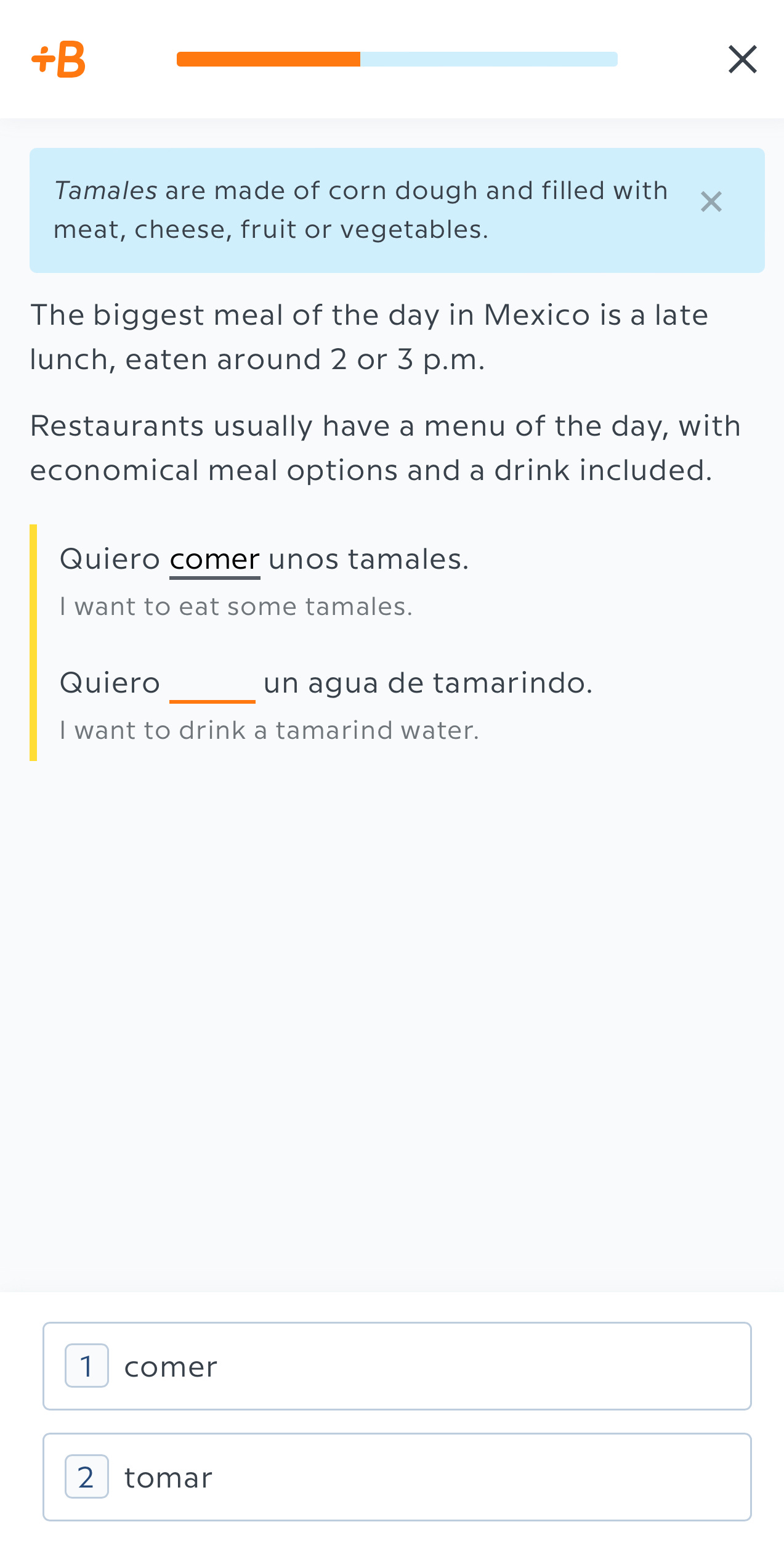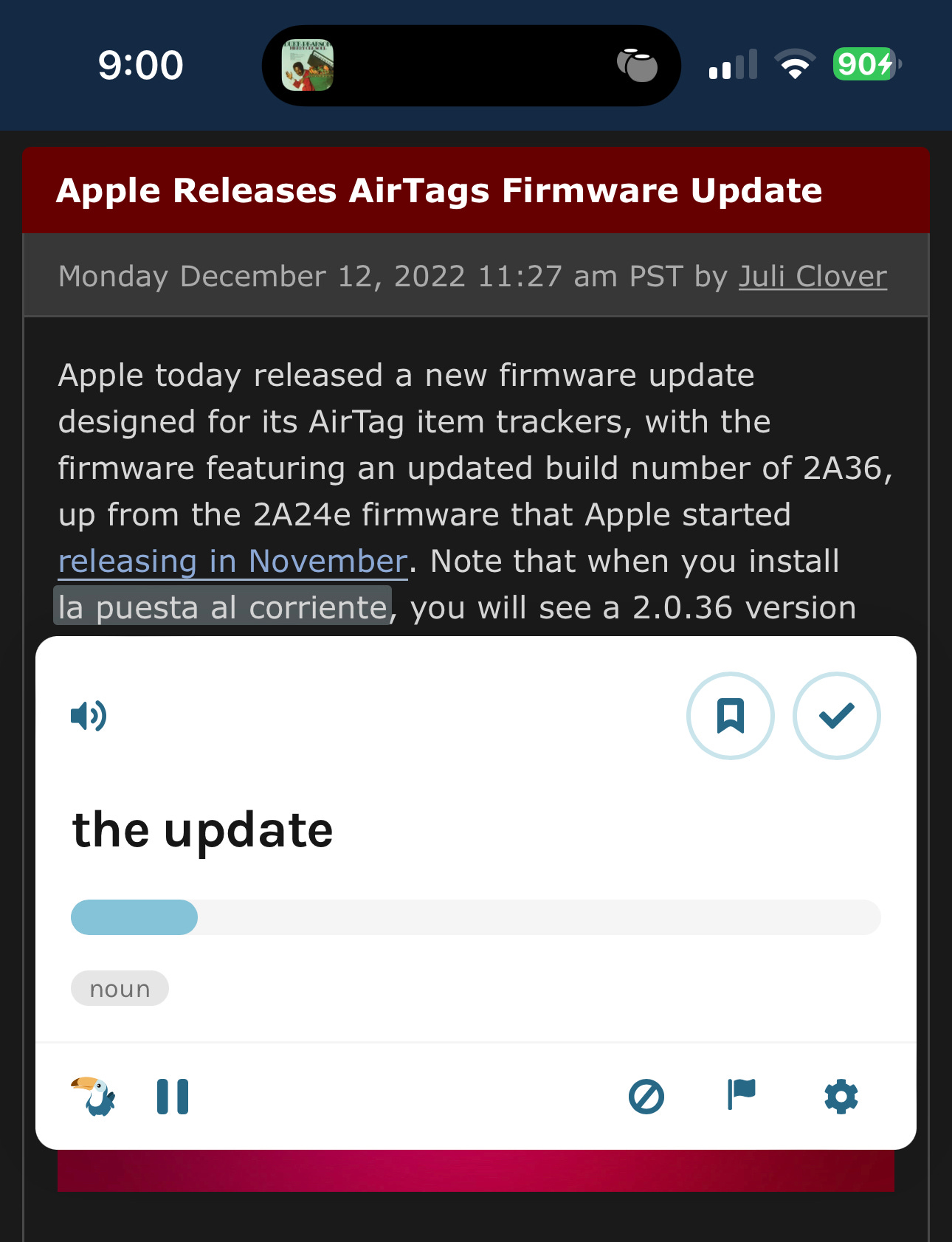Welcome to Matt’s Mix Tape: Steady beats for making the most of midlife.
I caught a strange infection in Mexico.
No, not like that.
It was a mental infection. A curiosity bug that spread quickly and now I’ve succumb to it.
I want to speak Spanish.
I took three years of high school Spanish. Today, only faint echoes remain from trudging through those dry textbooks and chanting monotone phrases.
But being around my teammates in Mexico made me want to answer my faint echoes:
Michael Sklar and Shaunna Abling conversed effortlessly with locals. It was like seeing them enter a private club–but one that requires only time and effort to enter.
Charlotte Grysolle speaks three languages.
Will Mannon has a YouTube channel where he speaks only Mandarin Chinese.
Surrounding yourself with talented and driven people makes you want to level up. And in middle age, we must find new challenges to keep our creative fires stoked.
But first, some research. Surely language acquisition strategies and tools have transmogrified since Señora Benford taught me in that early 90s classroom. I had to figure it out.
Learning new language strategies
Chris Lonsdale’s Ted Talk obliterates much of the traditional thinking on language learning.
For example, Lonsdale says language immersion doesn’t work. If you thrown someone who cannot swim into the ocean, they’ll drown. Language immersion is the same.
Lonsdale says there are five principles and seven keys to efficient language acquisition. I’ve listed the principles below and my plans to address each follow in italics. More on those details in the next section.
The five principles:
1. Focus on language content relevant to you. (Focus on the top 1,000 words)
2. Use the language as a tool to communicate from day one. (Annoy family and pets with Spanish. Talk with a tutor.)
3. When you understand the message you will acquire the language unconsciously, i.e comprehensible input (Use Toucan for context online and use Spanish subtitles for TV shows.)
4. Language is not about accumulating a lot of knowledge but is rather a type of physiological training. (Speak often including in every online lesson, and exaggerate facial expressions.)
5. Get comfortable with ambiguity. (Be excited by what I pick up–not disheartened by what i'm missing.)
My plan: learn in bite-size increments without wasting time.
The tech stack
Babbel
Babbel use a wide variety of learning approaches — multiple choice, typing out, listening, reading, and speaking. It provides context for the content it teaches by placing words and phrases into everyday conversations. You can work on vocab, grammar, and much more. There are also side games and reviews to mix things up.
Babbel tracks your progress and your streaks—your daily work. The lessons are short so you can knock them out in small blocks of time throughout your day.
Babbel also drops in notes about culture, word origins, and more. Like this:
Pro tip: Create an account, but don’t buy a membership right away. You can try out the first lesson in each module for free.
After a couple of days, Babbel emailed me a 50% off coupon: buy six months and get a year’s subscription for around $44. Boom. Patience pays off.
Pricing
$89 full price for a year’s subscription. But deals abound.
A side note on Duolingo. It’s similar to Babbel, but more focused on a fun and gamified experience. I didn’t feel its lessons were as varied as Babbel and it didn’t provide as much context. Duolingo seems more concerned with making you feel like you’re winning a game than with truly teaching. Most of the reviews I read from language experts also recommend Babbel over Duolingo.
Reword
Reword is a daily vocabulary supplement in flashcard style.
Reword shows you the word, then drills you on it by reshowing the word as part of a vocab cycle. You answer by typing it in or choosing from a multiple choice list.
You choose how many words to learn each day and a subject area. I went low—five words a day—with a broad focus on the top 1,000 words (if you can master the top 1,000 words in any language, you’ll have ~88% comprehension).
Reword tracks your words learned and your daily streaks. It’s great for drilling vocab, but not for conversational lessons or grammar.
Pricing
$5.00 / year
Toucan
Toucan is a browser plug-in that replaces snippets of English text on web pages with the Spanish language equivalent. Tapping on the phrase (or hovering over it on a laptop) reveals the English.
I installed Toucan on my iPad, iPhone, and Mac. There’s also a Chrome extension, if you prefer. The browser plug-in is free, and there’s a paid tier with other services like games, vocab reviews, and more. I’m sticking with the free version.
Pricing
Browser extension: free
Paid tier: $8.99 / month or $59.99 / year
(Thanks Michelle Serro for the tip on this one.)
Wild card: italki
I haven’t tried italki yet, but it comes highly recommended.


Will Mannon uses italki to crush Mandarin Chinese—no small task. The site offers affordable 1:1 tutoring, and next year, I’ll try out a lesson a week.
Pricing
Varies by tutor, but most fall between $5 and $20 per hour.
The learning cadence
When adopting any new habit, an overambitious plan results in drop-off, dismay, and abandonment.

Consistency wins, just like with exercise. Steady beats compound over time.
So I’m aiming for 15-30 minutes a day between Babbel (grammar and conversation) and Reword (vocab growth). Both allow for short lessons and dipping in and out of the apps. I’m replacing some Twitter scrolling with something far more productive. And I’ll add on the italki lesson each week.
Same dopamine hit as scrolling, also. In fact it’s better. I feel like I’m making small and steady progress every day on something real.
Because I am.
Adding it all up
Why bother learning a new language? Translation tech gets better all the time.
When I follow my curiosity the result is always positive. I want to answer those fading echoes and level up my Spanish.
But also my mind.
Learning opens new neural pathways and stokes creativity—which we need in middle age.


As Sklar says:
New challenges met with steady beats help us avoid the Great Cementing.
Or, put another way: evita el Gran Cemento.
Thank you for reading.
Whatever you’re working on or working through: keep the steady beats going.
If you liked this edition, would you mind giving the heart a click? Thank you.









I can't recommend this book enough for a foundational understanding of Spanish: https://www.amazon.com/Madrigals-Magic-Key-Spanish-Creative/dp/0385410956
Te encuentras en una aventura muy emocionante, Matt. (You're in for an exciting adventure!)
If you decide you want 1-1 at some point, hit me up for my VERY well-priced Mexican teacher. She's traditional but also flexible and the best human being. Re: Duolingo...oy. I was addicted. They've mastered gamification. It kept me coming back every day, even though I couldn't actually speak Spanish at all – I could only understand it. Beware the dopamine rush!